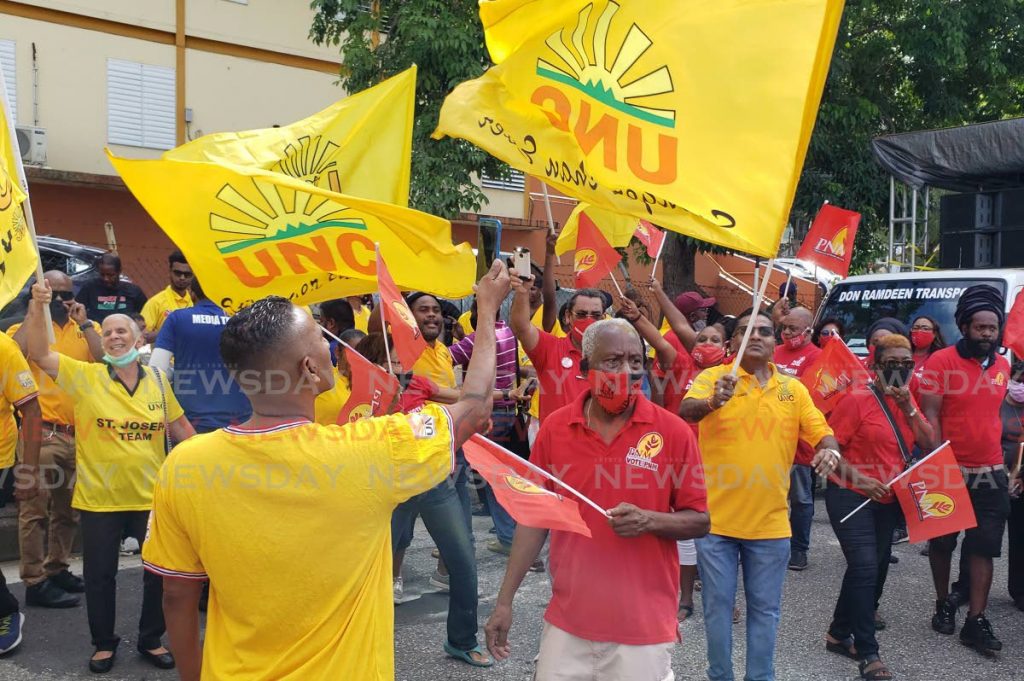Points to think about when voting

KIRAN MATHUR MOHAMMED
kmmpub@gmail.com
Each party in TT has a path to victory that involves neither populist promises or sharp factionalism. Likewise, each voter has the chance to improve our democracy. They should take it.
In the 2015 election, the PNM won 16 seats with more than a ten per cent lead over the next candidate. The UNC won 12 seats with a similar lead. Typically, the UNC wins more seats considered “marginal” than the PNM, but the PNM starts off with more “safe” seats.
This implies that the UNC, in order to win, has to appeal to a wider cross section of voters in order to win an election, while the PNM only has to appeal to marginal voters in a few key consistencies (in 2015 those were Moruga, St Joseph and La Horquetta/Talparo).
What political incentives does this imply for each party? Since the PNM has a larger base to start with, they don’t have to focus as much on turning out their base. This gives them more political room to manoeuvre and enables them to make decisions that are less popular with their base, but more popular in marginal seats (particularly with marginal voters that are less drawn in by populist promises).
The PNM can afford to displease their base more. The UNC on the other hand must both please their base and attract marginal voters.
These factors create an electoral dynamic that can be turned towards good or ill. On the one hand, they mean that the PNM has more room to take tough, unpopular decisions. On the other hand, they also mean that the PNM has less need to construct a “big tent” of support. They can more easily ignore public opinion, with fewer consequences.
As for the UNC, they must appeal to a wider group of people in order to win. This is good as it means they have an incentive to be more representative. However, it also means that they have an equal incentive to propose less sustainable, populist policies.
An old narrative has framed a false choice: associating populism and tribalism with victory; and progress and reform with defeat.
But as the data above shows, this is wrong. There are clear paths to victory for each party that involve good, tough policies and inclusive governance. We still have reasons to be hopeful. The PNM can attract marginal voters with a platform of responsible, tough reform. The UNC can attract marginal voters with the promise of participatory change and empathy. Each is a path to victory.
That said, save a few exceptions, both parties have taken the dark path. Little wonder the economy has shrunk in the last ten years. This is firstly because the dark path has historically been easier, and secondly because tight party discipline on both sides of the aisle means that we have little tradition of dissenting backbenchers with alternative opinions.
So why should anything be different this time? This election is different because twin economic and public health crises have disrupted political norms. This means that the path of responsible governance and empathetic leadership is now both the better, and the more direct path to victory – for either party. Party leaders and political operatives must immediately recognize this and change tack, if they have not done so already.
Back in the real world, what should voters consider? First, voters should prioritise execution and accountability over any other policy preferences. Vote for the party that you think can better get things done, even if you like their manifesto less than the other side. This is particularly important to consider if you are being promised something expensive. Chances are whoever is promising it will be less able to afford to deliver it in the current economic climate.
Second, vote for your representative, and not for the party leader. You should particularly empower any candidate that has publicly disagreed with their party leadership over any policy issue – even if you disagree with that candidate’s position. The more independent representatives we have, the stronger our democracy will be.
Third, vote for representatives that have committed to listen to the government’s medical experts. This is a general point that has assumed an outsize importance in a public health crisis.
Economists Daron Acemoglu and James Robinson have famously demonstrated that strong institutions are the single biggest factor predicting growth. If the end of this story is not to be another lost decade or a downward spiral of crises, we have no choice but to act.
Kiran Mathur Mohammed is a social entrepreneur, economist and businessman. He is a former banker, and a graduate of the University of Edinburgh

Comments
"Points to think about when voting"